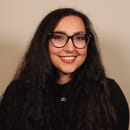High School Musical’s Taylor McKessie, played by Monique Coleman, was known for the bright and bold headbands she wore in her hair in almost every scene. The statement accessories quickly became a part of who Taylor McKessie was, but in a recent interview for High School Musical’s 15th anniversary, Coleman revealed the real reason she wore headbands was to hide her hairline. According to Insider, Coleman said the hairstylists on set did not know how to work with Black hair.
“We’ve grown a lot in this industry and we’ve grown a lot in representation and we’ve grown a lot in terms of understanding the needs of an African-American actress,” Coleman said in the Insider interview. “But the truth is, is that they had done my hair, and they had done it very poorly in the front. And we had to start filming before I had a chance to fix it.”
Coleman’s experience is unfortunately not a unique one. Many Black women in the entertainment industry have spoken about how many hairstylists on set do not know how to work with and style Black hair. Hollywood’s lack of diversity has been a topic of conversation in recent years with the #OscarsSoWhite movement that called out the Academy for its predominantly white nominations. In 2019, Black actors and actresses used the hashtag #ActingWhileBlack and shared their experiences with inequality in the industry. Many have admitted they must do their own hair to avoid looking bad on screen.
Actress Yvette Nicole Brown tweeted: “Most black actresses come to a new set w/ their hair done (me) or bring their wigs & clip-ins w/ them. It’s either that or take a chance that you will look crazy on screen. Many of us also bring our own foundation. One too many times seeing no shade that matches you will learn ya!”
Beauty standards in America have been influenced by Western culture. The ideal, beautiful woman in American society is usually paler, slimmer, and has silky, straight hair, and this image of the beautiful woman was born out of centuries of blatant racism and prejudice against communities of color. While most women, no matter their race, feel pressure to be physically beautiful in the eyes of society, Black women also have to face the erasure of their own culture to fit into America’s Eurocentric beauty standards. Black hair can have a variety of textures and curls, which can be wavy or tightly coiled, and because of the years of segregation in America, many non-Black stylists never learned how to style Black hair. However, now is the time to do better. Stylists, no matter their own race or hair type, should be able to work with any type of hair. After all, it is their job.
Camille Friend, a professional hairstylist in Hollywood, founded an educational program called Hair Scholars for stylists to learn more about working with diverse hair types.
“This is a real opportunity for everyone to learn,” Friend told Refinery29. “Stylists young and old should look into classes and always be willing to learn new things. There is a solution to this problem, we all just have to be willing to learn.”
In addition to the problem of non-Black hair stylists not knowing how to work with Black hair, the entertainment industry faces another diversity issue. Black stylists are not being hired. According to Glamour, actress Aishee Dee from Freeform’s The Bold Type said there was a lack of diversity behind the scenes of the show’s production.
“It took three seasons to get someone in the hair department who knew how to work with textured hair,” Dee wrote on Instagram. “This was impactful on so many levels, and I’m grateful for the women who showed me how to embrace and love my hair in a way I never had before. I want to make sure no one else ever has to walk onto a set and feel as though their hair is a burden. It is not.”
While the entertainment industry has come a long way since Monique Coleman’s experiences on the set of High School Musical, there is still a lot of work to be done. To do better, productions should hire a more diverse team, both on-screen and behind the scenes, and the beauty industry should make the effort to learn how to work with all hair types. Being anti-racist is more than just recognizing a change needs to be made. It is actually making the effort to change the institutions that uphold racist behaviors and mindsets.


